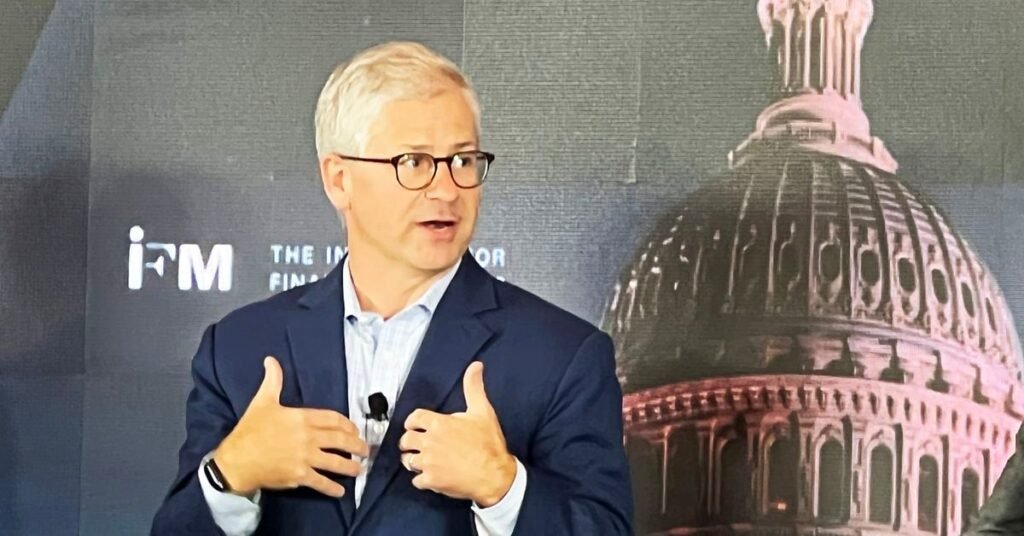
-
A
bill
to
set
out
a
regulatory
regime
for
U.S.
cryptocurrency
markets
will
finally
get
a
vote
from
the
overall
House
of
Representatives,
said
Rep.
Patrick
McHenry. -
The
House
Rules
Committee
approved
the
legislation
for
a
vote
next
month,
potentially
pushing
it
toward
a
high-water
mark
for
crypto
legislation
in
the
U.S.
The
most
comprehensive
U.S.
cryptocurrency
legislation
to
so
far
make
it
through
a
congressional
committee
will
get
even
further,
with
the
entire
House
of
Representatives
set
to
vote
on
whether
to
approve
it
soon,
according
to
Rep.
Patrick
McHenry
(R-N.C.),
the
chairman
of
the
House
Financial
Services
Committee.
His
panel
last
year
had
cleared
the
Financial
Innovation
and
Technology
for
the
21st
Century
Act,
or
FIT21,
in
a
bipartisan
vote
that
drew
a
handful
of
Democrat
supporters
in
spite
of
opposition
from
their
ranking
member
on
the
committee,
Rep.
Maxine
Waters
(D-Calif.)
That
bill
is
on
a
path
toward
becoming
the
first
significant
digital
assets
regulatory
legislation
to
clear
one
of
the
chambers
of
Congress
now
that
it’s
been
cleared
for
a
vote
next
month
by
the
House
Rules
Committee,
according
to
McHenry.
The
bill,
which
had
also
been
approved
by
the
House
Agriculture
Committee,
is
the
“culmination
of
years
of
bipartisan
efforts
to
finally
provide
clarity,”
said
the
North
Carolina
lawmaker,
who
is
retiring
from
Congress
at
the
end
of
the
year
and
made
crypto
legislation
one
of
his
priorities
on
his
way
out.
“With
the
floor
vote
announced
today,
Congress
will
take
a
historic
step
to
provide
a
clear
regulatory
framework
for
digital
asset
markets,”
McHenry
said
in
a
statement.
“This
legislation
will
cement
American
leadership
of
the
global
financial
system
for
decades
to
come
and
bolster
our
role
as
an
international
hub
for
innovation.”
Though
it’s
a
mark
of
progress
to
get
legislation
that
far
in
a
highly
partisan
and
combative
Congress,
the
bill
is
unlikely
to
find
parallel
action
in
the
Senate
–
which
is
needed
for
Congress
to
fully
approve
legislation
and
send
it
to
the
president
to
sign
into
law.
That
chamber
hasn’t
yet
done
high-level
work
on
a
similar
effort,
though
lawmakers
there
recently
showed
some
willingness
to
find
a
path
for
another
crypto
effort:
a
bill
to
regulate
the
issuers
of
stablecoins.